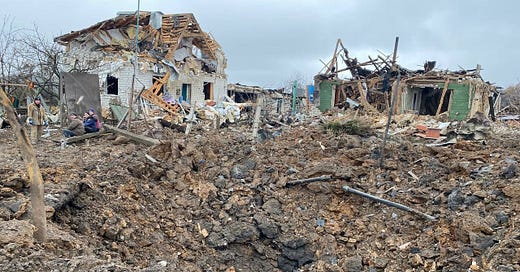"Don’t Be Emotional!" (About Putin’s War Crimes)
Why this Phrase is Actually the Zero Degree of Strategic Thinking
Destruction by Russian attack of peasant village of Yakovlivka in Kharkiv Oblast, March 3, 2022. Source: Ministry of Internal Affairs of Ukraine
"Don’t be emotional!” is a phrase that many of us have heard when referring to the massive war crimes committed in Ukraine by Putin’s armed forces. No doubt these so-called strong and virile minds recognized, al…




